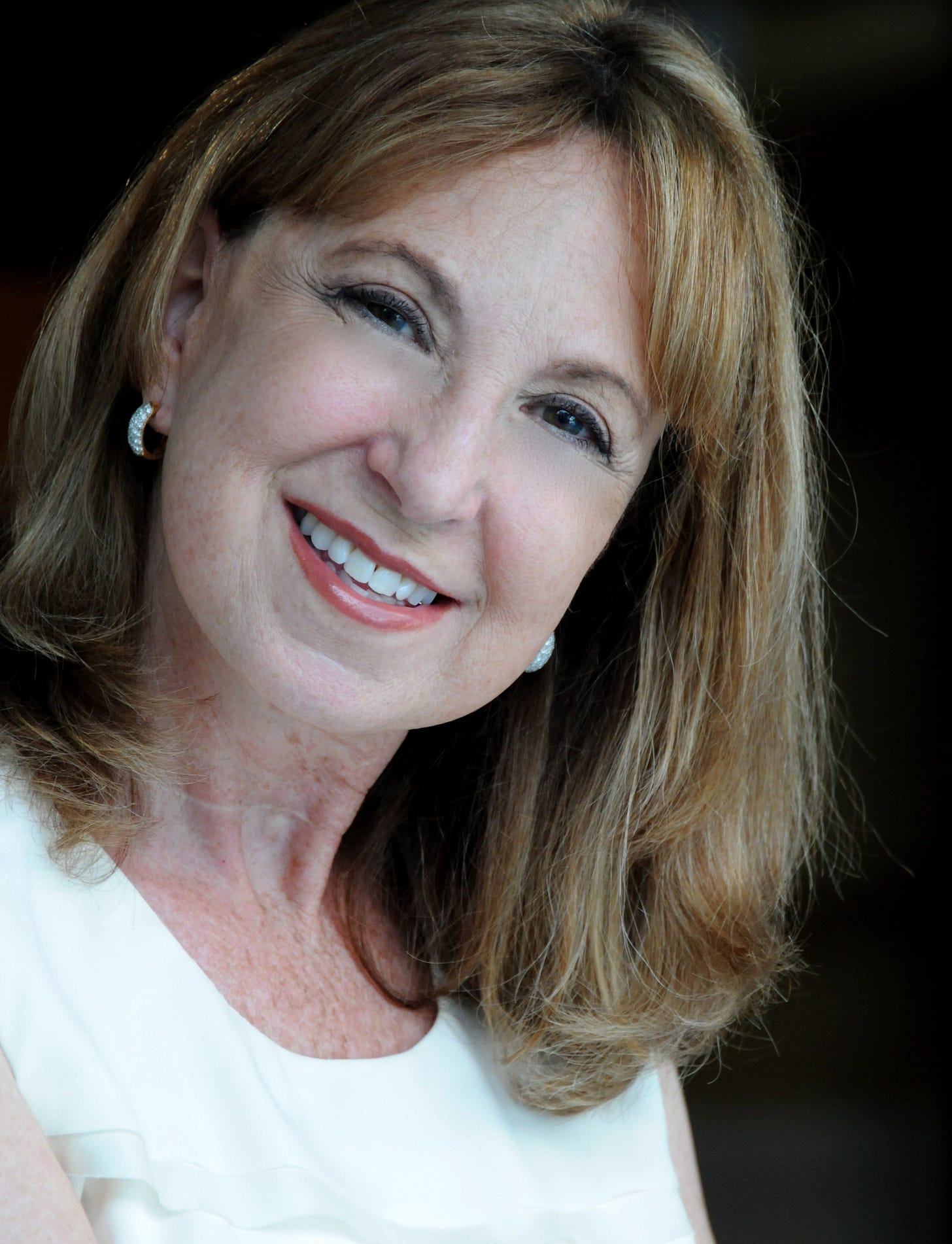'Mental illness is a family disease'
As her children recovered from addiction, Leslie Glass discovered the best way to help them was to focus on herself.
When Leslie Glass found evidence her teenage daughter, Lindsay, had been drinking, it was easy enough to shrug it off and say, “Well, it’s just alcohol.” Likewise, when she found a marijuana pipe in her daughter’s room, she told herself, “Really, that’s not so bad.” And when Lindsay eventually developed an eating disorder, she did what any concerned mother might do – took her to the doctor, who assured Glass her daughter was “physically, just fine.”
“As parents, the first signs you see of drugs and alcohol, you don’t know whether you’re seen a teen in a rebellious stage or you’re seeing someone starting on a decline into addiction or mental illness,” says Glass, a popular crime novelist turned addiction recovery advocate and co-founder of the Reach Out Recovery website. “We often don’t know what we’re looking at, so we don’t know what to do. Like many families, educated and connected as I was and with so many resources, I couldn’t get the help that I needed or that my daughter needed.”
Eventually her daughter received a diagnosis of bipolar disorder and borderline personality disorder, the latter an illness that is often misdiagnosed and mistreated. (That diagnosis was eventually dismissed.) Glass was horrified, fearing it was “the end of many dreams.” So she did what many parents do when they are paralyzed with fear about their children’s future, but equally concerned that going public will reveal their own parenting failures -- she “floundered.”
“Because we don’t have a background in knowing what we’re looking at, we don’t know what to do,” she says. “You can’t argue with a mental illness. You cannot tell a teenager to do things they don’t want to do. You cannot make contracts that ‘If you get better, things will go better.’ This is what I call the destructive conditioning of parents, because as our children flounder, we flounder too.”
And if you have what Glass calls “a mother’s heart,” that destructive conditioning can furnish an excuse to micro-manage your children’s lives, enabling them to shirk their own responsibilities because you have no trust they can manage anything themselves. For more than a decade, during which time her son also developed an addiction, that’s exactly what Glass did. So enmeshed was she in trying to save them, she ended up sacrificing her own work, health and marriage in the process.
“If you have a mother’s heart, you’ll do everything for your child, including kill yourself,” Glass says. “At one point I had a child whose home life was a wreck, who had a dog and went to work and then after work he went out drinking. And what would I do? I would go and clean his apartment and take out his dog.”
Eventually, Glass realized her family was part of what she still calls “the biggest untold story in America – not what mental health and addiction looks like, but the story of how families recover.” It’s a story she believes is shared by thousands, if not millions, of other families across the nation and around the globe. The only way the former New York Times bestselling author knew how to deal with such an enormous unknown was to encourage her daughter, a screenwriter with a background in publishing, to take their experience and “Make it art. Write it down. Talk about it.”
Glass suggested Lindsay create a fictionalized film mirroring their saga. Her daughter went a step farther and urged that they themselves become the heart of a documentary film about recovery. Initially Glass balked, but in 2016 they produced a short documentary called “The Secret World of Recovery” that centered on their experience. The film, which made the rounds of film festivals, was a very public breaking of the silence and secrecy.
Almost immediately, Glass realized she could “never go back to my old life.” She decided to use her talents as a writer to translate the complicated medical and psychological information about addiction and recovery into accessible information for families hungry to help their loved ones in recovery. That commitment resulted, in 2011, in the debut of the website Reach out Recovery: Tools for Recovery, Wellness and Relationships, which now has had more than five million visitors.
Glass also accepted that her children were not the only ones who needed to address their mental health. By turning all her attention to them, she had nearly annihilated herself.
“There’s not a family that copes with a mental illness or addiction that doesn’t struggle with how difficult it is to maintain or create a feeling of normalcy and safety,” she says. “What I will say is, you can find your way to personal safety if you use the same tools as your loved ones need to use. Because there are two people involved here: there’s the person who has an illness and there’s another person who is a caretaker.
“And being a caretaker year after year after year completely destroys your self-esteem, your joy of life, your creativity, your sense of fun, your sense of humor. It takes every piece of yourself to be a caretaker for someone you love so much and want so badly to be all right.”
Glass began going to Al-Anon meetings, to practice mindfulness and to accept that trying to exercise control over her adult children was as detrimental to herself as it was to them. Not only are her daughter and son now years into their recovery, Glass is years into her commitment to a new lifestyle and career path. The former crime novelist who “killed people for a living” is now a member of Newsweek magazine’s mental health experts panel, the chairperson of Rotary International’s U.S. Task Force on Addiction Prevention and, most recently, the author of “The Teen Guide to Health” (2021).
The book focuses on what she calls the “three pillars of health”: physical health (sleep, exercise, diet, hygiene, organization and orderliness); mental health (which she describes as “Everything we say, think and do”) and social health (building and enjoying relationships with others). Pressed to add a fourth, she admits that “having a passion, a purpose – what Joseph Campbell called ‘finding your bliss,’” is also essential.
What often goes unacknowledged, Glass says, is that when there is someone with mental illness or addiction in a family, there is inevitably mental illness and family dysfunction in the rest of the family as well. Taking into consideration factors of generational and historical trauma (everything from war and the Holocaust to poverty and racial discrimination) it can be said that mental illness is essentially part of “not only the American experience, but every nation’s experience…it’s part of absolutely every family.”
Yet as important as it is to acknowledge that, Glass says, it’s equally important to emphasize that it doesn’t have to be our undoing.
“We live through it, we manage and we find ways to be OK,” she says. “We as humans have enormous resilience and the sadness we may feel as parents that our children have to go through something so terrible should be offset by our belief in the power to change, the empowerment of every person’s ability to be the very best they can.”
What’s important, Glass says, is to embrace a sense of hopefulness rather than helplessness and to understand that mental illness and addiction are not exclusive to a specific population or separate from our physical health. Once we’ve acknowledged that mental well being is both an individual and a shared responsibility, “we have the ability to be resilient, compassionate, kind and to share the connections of like-minded people to come to solutions that will improve our nation” -- even if we’re not quite there yet.
After all, she points out, it took women 100 years to earn the right to vote in this country and advocacy for a change in cultural, political and judicial attitudes toward mental health is only about 50 years old.
So does that mean there will be a mental health transformation in this country in another 50 years?
“I hope it will happen a lot sooner,” Glass says. “It would be nice if it happened in my lifetime.”
If you or someone you know is interested in sharing a personal mental health journey on FMI, please reply to this post or write us directly at faceingmentalillness@gmail.com. The process involves a Zoom interview, the audio of which will be edited for a podcast, and a photograph. Thank you for helping to spread the word by sharing this post.
FACEing Mental Illness podcasts can also be found on Spotify, Stitcher and Apple Podcasts. We are grateful to anyone who chooses to submit a review.






This is another great story, Carrie. I just shared it along with "The Secret World Of Recovery" info on Facebook. Thanks for sharing.